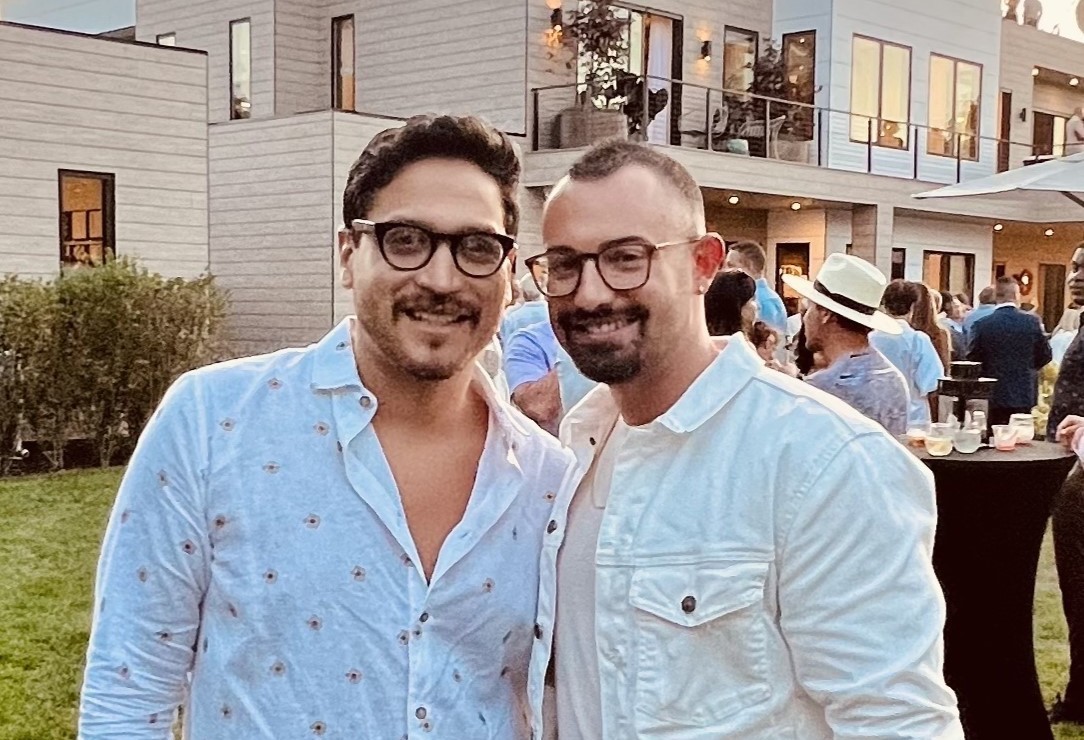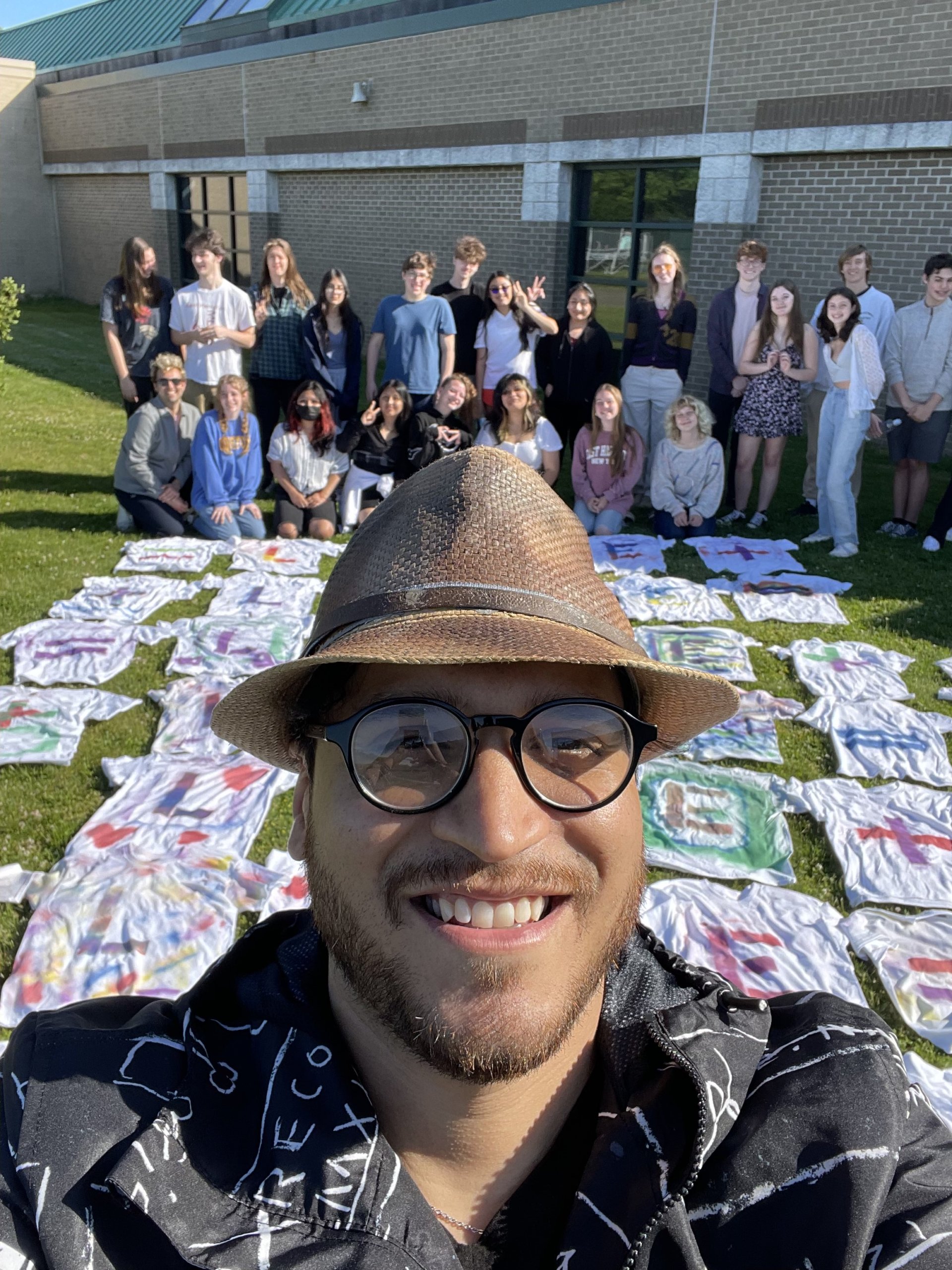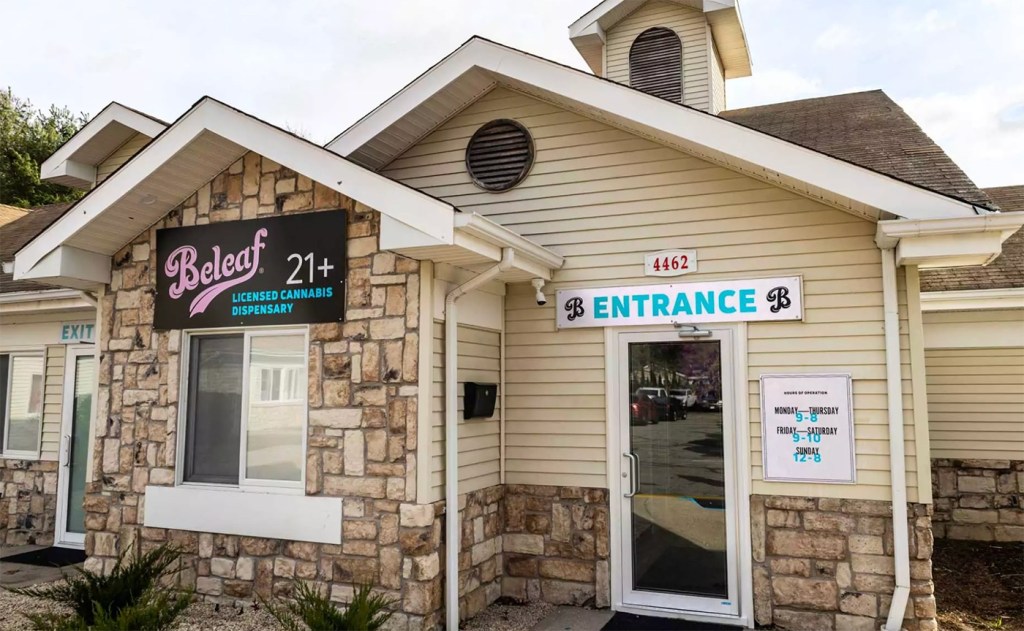That Ol' Hamptons Magic: Artist MAGO Found Success Out East, Now He's Paying It Back

Enrique J. Martinez, more commonly known as “MAGO,” is a graffiti expressionist and installation artist known throughout the East End and New York City as both artist and advocate, promoting diverse creators and charitable causes through community collaborations.
Born in New York in 1982, weeks after his parents emigrated from Santa Marta, Columbia, MAGO describes himself as an “anchor baby” forever thankful to his parents for the opportunities that his home gave him.
“Living and growing up in Queens influenced me in so many different ways and really got me ready for life in general,” he says. “Being raised in New York, I always wanted to get my hands into something. I was curious about the entertainment industry, the arts, cinema — I always admired those fields.”
Through his high school work-study program, he was given a rare opportunity to attend one of the Hamptons’ enticing Artists and Writers dinners, and something about the area immediately clicked in the young artist’s mind. “I always found the Hamptons to be very, very special from that beginning time as a teenager,” he shares. “If you’re a creative here, you will flourish because of the rich nature that the Hamptons has and the creative energy that’s like a whole vibe.”
Working for a boutique landscape designer in his early 20s, MAGO was tasked with helping develop an international sculpture showroom to enhance the garden design work. There, he began to develop skills that would later aid him in curatorial roles at local galleries.
He acquired his first art studio in the basement of a Norman Jaffee-designed home on Town Line in East Hampton Town, where he soon met his biggest critics. “I would present art to my mentors and others who were at that home, especially in the summers, and they would critique my artwork. It really helped me develop as an artist just by being around such creative folks,” MAGO recalls.
Esperanza Leon gave MAGO his first-ever exhibition at her gallery, which represented many Latin American artists, and it was then MAGO says he truly began “devoting my time in life to the creative world.”
After opening his own production company, he would eventually move to Sag Harbor where he partnered with the Richard J. Demato Fine Arts Gallery. “The RJD Gallery gave me a very large platform, and under Richard’s mentorship, I truly flourished as a curator and a person in the arts scene on the East End,” he says.

By the time RJD Gallery relocated to Michigan during the pandemic, MAGO had firmly established himself in the Hamptons’ art world, and more opportunities came knocking. He was twice commissioned to work with Guild Hall’s Teen Arts Council to develop installations for the first two Hamptons Pride parades in East Hampton.
He hosted the LongHouse Reserve’s “Insider Outsider” conversations with diverse artists such as Arta Brito, a transgender woman exploring the experience of transitioning; Jeremy Dennis and Andrina Smith from the Shinnecock Nation; and Uncutt, a Haitian graffiti artist. He facilitated the collaboration between the Edie Windsor & Thea Spyer Foundation with Rick Friedman’s Hamptons Fine Art Fair to create the inaugural Midsummer Bastille Day Tea Dance & LGBTQ+ Fundraiser.
And he was sponsored by Casamigos to paint the mural at the recently opened eLTacobar in Sag Harbor. “I’ve lived in Sag Harbor for so many years, so becoming a part of the landscape there is the pinnacle of my year,” he says of the honor.
MAGO also produced a short documentary about Salvadoran artist Oscar Molina’s powerful “Children of the World” installation. The film was screened at the Sag Harbor Cinema on Indigenous Peoples Day, accompanied by a live panel discussion with Cristina Cuomo, Esperanza Leon, Oscar Molina, Minerva Perez and MAGO.
“That was a highlight of this year and a great byproduct of the magic here on the East End,” he says. “It’s like coming full circle to be sitting in a panel discussion with Esperanza, who gave me my first show; Minerva, who works for OLA of Eastern Long Island and introduced me to Esperanza over 20 years ago; Oscar, who is a very generous soul and a masterful sculptor and painter with a strong message; and Cristina, who has been very supportive through the years, generously guiding me in my career and helping me through support from her publication.”

The “Children of the World” event was a collaboration between the LongHouse Reserve, Sag Harbor Cinema and OLA of Eastern Long Island — “three amazing organizations giving a platform to a beautiful film about immigration,” MAGO says.
“That is a universal concept because the massive amount of folks leaving an area, a mass exodus, is something that has happened in the past, is happening now and will happen in the future due to human behavior. … I also find interest in the fact that Molina works with construction materials because — with so many of the youth on the East End having a father, uncle or mom that works in construction — these are readily available materials, and I love for the youth to know that they can work with what they have.”
With the groundwork laid, MAGO was kind enough to answer our questions about his mysterious mononym, his Hamptons life with his partner and pups, and his eagerness to repay the East End community for the kindness and magic he’s experienced here.

A Conversation with MAGO
How do you self-identify, and in what ways has your identity influenced your career focus?
I consider myself a queer Latinx creator, producer, conceptual artist, diversity curator — anything that falls under the umbrella of diversity and amplification. I use all my talents to push that forward. Like an enthusiast, haha. Yeah, I’m a diversity enthusiast. I’m proud of seeing the community grow here in the Hamptons, in terms of both queer and Latinx people. I’m proud to be part of it. …
For me, being able to amplify artists from my community is my number one drive, even in my artwork now. A lot of the work that I come up with is much more conceptual and often involves working with multiple artists on multidisciplinary installations. … I now find myself being a curator of diversity and helping amplify the voices from our community and, in that way, helping artists get connected with institutions and galleries, introducing them to the industry as professionals to be taken seriously.
Opportunities (to network at events like Edie Windsor’s BBQ) are golden because we have not only folks from our community and the many different sub-communities under the LGBTQ+ umbrella, but we also have allies.
And you have folks that maybe don’t support the issues but want to see what is being said, what the thought behind the community is or where we’re at on many different levels, as there’s always a legal component that affects our community, as well as public health issues that we are focusing initiatives on to help our community survive and thrive.
Those spaces are meant for just that: to create those opportunities to connect people from different worlds. And those collaborations are one of the positive things going on today. In everything from the fine art world to the commercial world to the nonprofit world, you’re finding wonderful collaborations.
Can you tell me about the origins of your MAGO mononym?
MAGO is a nickname from my dad. My father worked in hospitality, and he would always bring back trinkets from these conventions. He was just as curious as I was. But when my folks would leave home, I’d try to study these little gadgets. Sometimes I’d break them apart and have to dig a hole to bury them.
“Mago” means magician in Latin. … My father named me that because I would make things disappear. I would mess these little things up, so he called me “El Mago.” People from South America and from the Caribbean coast make everything into a little joke, living life through happiness and light gestures. My home was always like that.
My father always had music on. I grew up in a very colorful home environment at a very upbeat pace. My parents are definitely my biggest cheerleaders, and I would say that 99% of the reason I have the work ethic, morals and character that I have is due to them.
My parents being so open to nurturing my creativity was a big component. I wish that for all kids, because that sort of support has been very instrumental to my growth.
From there, growing up in New York City, in inner-city public schooling, graffiti was on everything. It was on our sneakers; it was on our binders, on everywhere you like. And you had a tag. My tag, of course, was MAGO.
When I started doing graffiti as an art form, or as a teenager on the street in public, MAGO was my tag — from being my nickname to my tag. And it’s been interesting, especially out east, everybody knows me as MAGO because I’m so immersed in the art world here. It’s just become my name. I grew up as Mago, and most people here know me as MAGO.
How long have you lived on the East End, and what does your life here look like?
I’ve been living here now for 10 years. I’m in love. I live with my partner, John Evans. We live a wonderful life in our gay little cabin, and our two dogs, Coco and Sunny, are a big part of our lives. We love dressing them up and making them cute. I have a great queer life here. … I’m very, very, very lucky. I feel so blessed to be able to do what I love to do every day and be in a loving relationship. I still have access to New York City at the convenience of a two-hour trip, but most of my efforts are here in the Hamptons year-round. …
I live in the world of art here, which is very empowering, especially when thinking about my humble beginnings. … I’m very passionate about my work, and I look forward to this upcoming year. I think there’ll be some really great developments, and I’m already working on curatorial schedules that will be part of a very promising year in the arts out here in the Hamptons.
I’m also working on Lucy Cookson’s watercolor book, and Lucy is a great example of my growth here on the East End. I met her as a collector at the RJD gallery, then curated her collections at her home, and I’m now assisting her with her book — it shows you the magic of the East End. In the Hamptons, art can be a language that transcends through cultures, ages, through almost anything.

Having worked with many nonprofits over the years — such as The Retreat, Human Rights Campaign and Project Enterprise — which are you focusing your support efforts on in 2024?
I’m looking forward to building a bridge with the American LGBTQ+ Museum that will be part of the New York Historical Society Museum in Manhattan. I just went to an opening at the center; it was an exhibition and installation having to do with the history of legal matters in the queer community.
I also have a big interest in seeing how to build a relationship with El Museo del Barrio in the Hamptons. I know they have a gala that Maria and Ken Fishel host here annually, but I would love to see some collaborations with them. And, of course, the Edie Windsor Healthcare Center. That’s the clinic I go to. I love them and would do anything for them. They’re such a great asset to have here in the community.
The work that they do at the center in Hampton Bays is essential to our community. And they all are rock stars, including Judith Kasen-Windsor (Edie Windsor’s widow), who’s always rallying and creating awareness for the center.
I love everything! I’m looking forward to the Tea Dance. I’m looking forward to the HMI party, and all of the organizations that have their special events in this very important time to raise awareness and funds in the Hamptons. I love to participate and support all of them. I try to go to as many as I can, donate auction items or help them organize.
I also have to say that the LongHouse Reserve is very unique; it is a great communal space where you live with art. It is an institution I can see myself aligning with because of the forums that I’ve already had there, and because it’s an inclusive space. A lot of institutions have become agile in making their programs a little bit more inclusive and diverse — and I really admire that — but there’s something about LongHouse.
I don’t know what it is about that institution, but right now it definitely has my heart. I like creating in that space. I see it as a canvas. It’s really fabulous. (The late) Jack Lenor Larsen created such a great space, and Carrie Barratt, the director that has taken it on, has such a strong history and is really directing the institution in a great way that is very inclusive.
Looking back on what you’ve accomplished thus far, what stands out as most fulfilling?
I feel a lot of purpose. I’m very driven, but I also think in patterns, so I jump from one idea to the next. I enjoy being able, at this point in my career, to work at the different levels that I do in art, entertainment and in the communal space. I don’t know, I’m just happy with where I’m at today. I feel challenged. I’m still learning every day.
Every single day, I learn from all the people that I interact with. I feel lucky to even have this interview in Dan’s Papers. I’ve been looking at this paper for over 20 years. It’s an honor. It’s a cumulative reward because I have many irons in the fire, and everything has its timing. I’m diligent. I go with the flow, and that seems to be working for me.
What new projects are you working on now?
Something new and exciting is that I’m learning about jewelry from the designer Stella Flame. I’m working with her. She’s a fabulous designer from Turkey. I’m always looking for the opportunity to learn and grow as a creative. And yes, I do feel very enthusiastic about this upcoming year for the arts here on the East End. There have been good reports back from Art Basel Miami, so hopefully people are enthusiastic to come and play, see and be part of the art world here in the Hamptons — collectors, enthusiasts, academics and all.
Would you like to share any closing thoughts?
I want to thank Vicki Schneps, Dan’s Papers and Stony Brook’s Edie Windsor Healthcare Center (the Out East End sponsor) for bringing together such a wonderful part of the newspaper that nurtures artistic and community expression. I am very proud to be part of the community on the East End and to share with like-minded folks.



